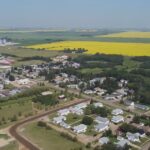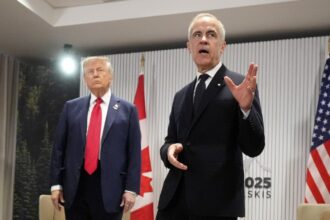In an unprecedented wave of resistance, several First Nations across Ontario have mobilized against the province’s controversial mining legislation, with some communities now threatening legal action that could fundamentally challenge the government’s approach to resource development on traditional territories.
The Mining Act amendments, championed by Premier Doug Ford’s government as streamlining development and boosting economic growth, have instead ignited fierce opposition from Indigenous leaders who argue the changes represent a dangerous erosion of consultation requirements and environmental safeguards.
“What we’re witnessing is not development, but degradation of our rights,” said Chief William Petahtegoose of Atikameksheng Anishnawbek First Nation near Sudbury. “The province continues to act as though our consent is optional rather than constitutionally required.”
At the heart of the dispute lies the “critical minerals” designation that allows mining companies to fast-track development permits for minerals deemed essential for manufacturing electric vehicle batteries and other green technologies. While government officials maintain the process still includes meaningful consultation, affected communities report being presented with decisions after they’ve already been finalized.
Analysis of internal government documents obtained through freedom of information requests reveals a concerning pattern: ministerial briefing notes repeatedly emphasize “streamlining” and “reducing regulatory burden” while containing minimal reference to Indigenous rights or environmental protections.
The Mushkegowuk Council, representing seven First Nations along the western James Bay coast, has documented over 30 instances where mining claims were staked on traditional territories without prior notification. Chief Moonias of Neskantaga First Nation described the situation as “colonial decision-making dressed in modern clothing.”
Economic projections from the Ministry of Northern Development suggest the expedited mining approvals could generate $12 billion in investment over five years, potentially creating 4,000 jobs. However, independent economic analysis questions whether these benefits will materialize if projects become mired in protracted legal challenges.
“The government’s approach is both legally and economically short-sighted,” explained Dr. Karen Drake, Indigenous law professor at Osgoode Hall. “Courts have consistently upheld the duty to consult and accommodate Indigenous peoples. By attempting to circumvent these obligations, Ontario is creating investment uncertainty rather than reducing it.”
The conflict has already disrupted several high-profile mining ventures. Last month, exploration activities near Grassy Narrows First Nation were halted after community members established a protection camp, while three other First Nations have initiated judicial review proceedings challenging permit approvals.
Environmental concerns compound the legal questions, with recent water quality assessments detecting elevated levels of heavy metals in watersheds downstream from expedited mining operations. Ministry officials maintain that environmental standards remain robust, but inspection records show staffing for enforcement activities has not increased proportionally with the number of approved projects.
As tensions escalate, federal Environment Minister Maria Wilson has signaled potential intervention, noting that Ottawa maintains jurisdiction over certain aspects of environmental protection and Indigenous rights. This adds another layer of complexity to an already volatile situation.
The dispute represents more than a regional conflict—it embodies the fundamental tension between resource development policies and Indigenous rights recognition that continues to shape Canada’s political landscape. Premier Ford’s office declined requests for an interview but issued a statement reaffirming the government’s commitment to both economic growth and “respectful dialogue with Indigenous partners.”
As mining equipment sits idle and legal briefs are prepared, the question remains: can Ontario find a development path that genuinely respects Indigenous rights while pursuing economic growth, or are we witnessing the early stages of a confrontation that could reshape resource governance across the country?

























